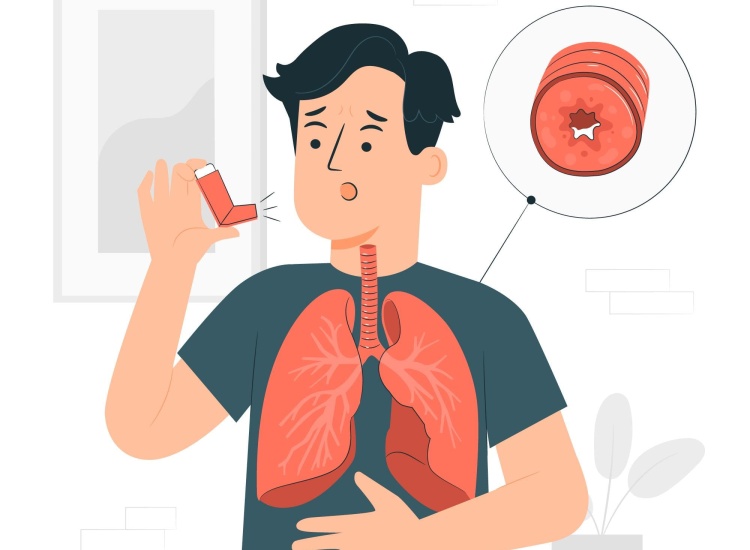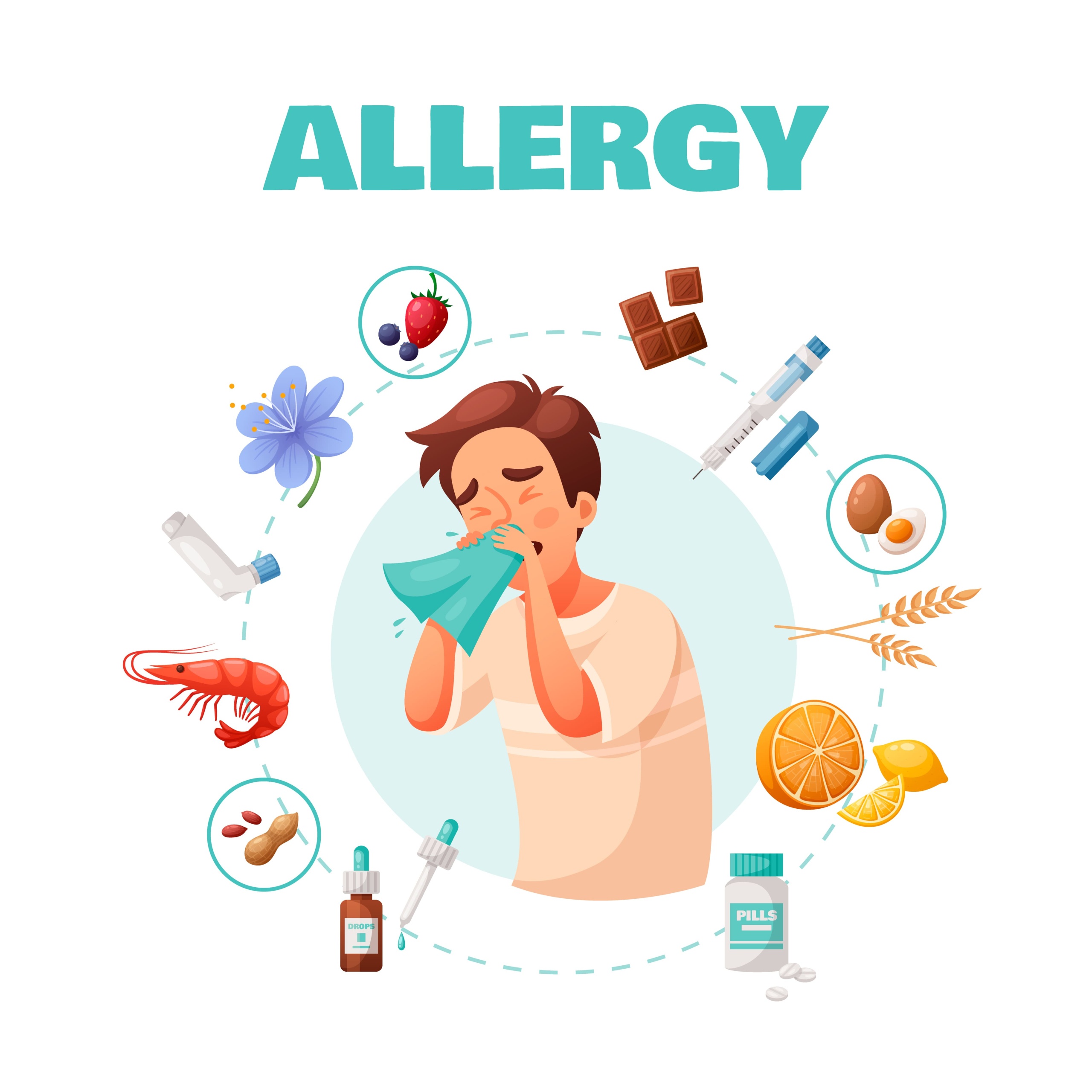
Asthma
Asthma is a chronic lung disease that inflames and narrows the airways in the lungs. A physical display of strong emotion that affects normal breathing patterns — such as shouting, crying, or laughing — may also contribute to an asthma attack. Panic can prevent a person with asthma from relaxing and following instructions, which is essential during an attack. Scientists have found that rapid breathing associated with strong emotions can cause bronchial tubes to constrict, possibly provoking or worsening an attack.
If you have asthma your airways are always inflamed. They become even more swollen and the muscles around the airways can tighten when something triggers your symptoms. This makes it difficult for air to move in and out of the lungs, causing symptoms such as coughing, wheezing, shortness of breath, and/or chest tightness.

Like any chronic condition, asthma can cause emotional strain. As a leading cause of work and school absences, it can have a significant effect on livelihood, education, and emotional well-being. Depression may set in when people diagnosed with asthma believe that they are unable to participate in normal activities.
Asthma symptoms can happen at any time. Mild episodes may last only a few minutes and may be resolved spontaneously or with medication; more severe episodes can last from hours to days.
Asthma is a chronic disease involving the airways in the lungs. These airways, or bronchial tubes, allow air to come in and out of the lungs.
The most common symptoms are:
- Coughing, especially at night, during exercise, or when laughing
- Shortness of breath
- Chest tightness
- Wheezing (a whistling or squeaky sound in your chest when you breathe, especially when exhaling)
- Any asthma symptom is serious and can become deadly if left untreated.
Symptoms may be triggered by exposure to an allergen (such as ragweed, pollen, pet hair, or dust mites), irritants in the air (such as smoke, chemical fumes, or strong odors), or extreme weather conditions. Illness — particularly a respiratory illness or the flu — and exercise can also make you more susceptible.
People with a family history of allergies or asthma are more prone to developing asthma. Many people with asthma also have allergies. This is called allergic asthma.

Treatments
Asthma is a chronic respiratory condition that causes inflammation and narrowing of the airways, leading to recurrent episodes of wheezing, shortness of breath, chest tightness, and coughing. The treatment of asthma aims to…









